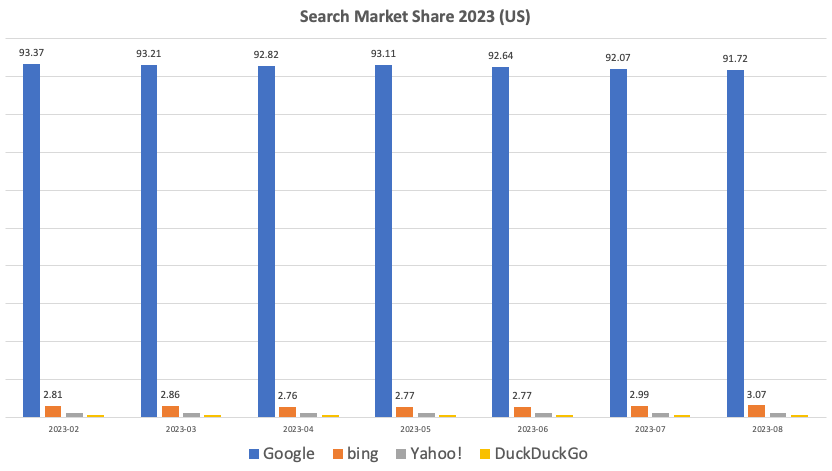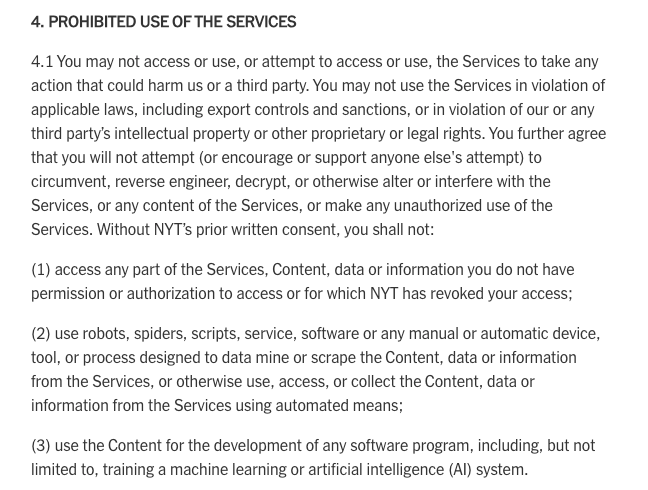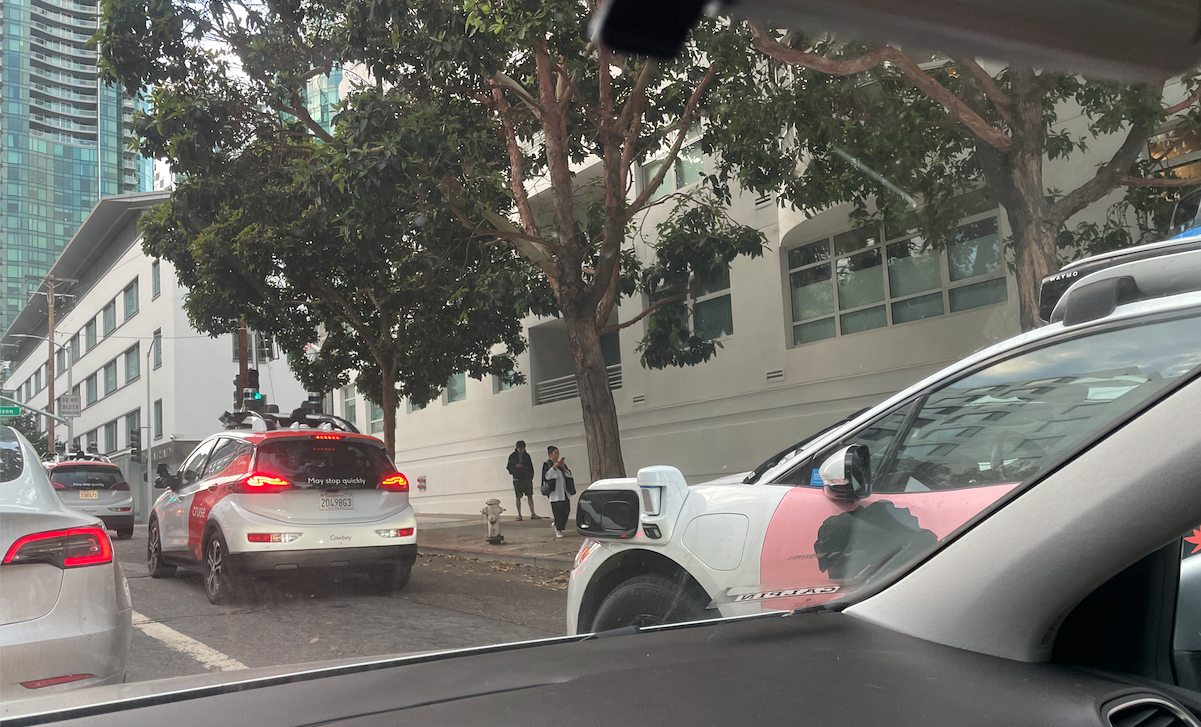BingGPT Stalls, TOS (AI) Wars, Robotaxis Not Ready

Has BingGPT Failed?
When Microsoft announced integration of ChatGPT into Bing this February, the company proclaimed it was "reinventing search." The positive coverage and buzz was a PR coup; it even boosted the company's stock. BingGPT's positive reception stood in contrast to the largely critical reaction to Google's underwhelming AI announcements later that week. In July, Microsoft reported, "Bing users have engaged in more than one billion chats and created more than 750 million images with Bing Image Creator." Yet a new article from the Wall Street Journal essentially pronounces BingGPT a failure because BingGPT hasn't really moved the needle for Microsoft in search. According to Statcounter, Bing has gained 0.26 points since BingGPT was introduced. Microsoft previously argued that every point of share gain is worth $2 billion. But that still seems a long way away.

Our take:
- BingGPT adoption was held back by Microsoft's "download Edge" strategy. That will change soon as BingGPT comes to other browsers.
- Microsoft doesn't rely on Bing for revenue growth. AI integration in other areas will drive more revenue. Still BingGPT growth would be nice.
- Google's introduction of Bard and SGE have been enough to steal attention back and retain early adopters who might've defected.
Here Come the TOS Wars
OpenAI, Meta and Google are all being sued for scraping content for AI training, without permission. That copyright litigation has prompted a frenzy of content licensing negotiations among the principals and major publishers. In some cases deals have been struck (e.g., OpenAI - AP). Meanwhile, most large tech companies are quietly changing their terms to allow any data in their systems or on their platforms to be used for AI training. The highest profile example was Zoom, which gave itself a royalty free license to all customer data. There was a furious backlash and Zoom was forced to modify its policy. Google and Microsoft, among others, have also changed terms to enable broad use of data for AI. On the other side, the NY Times is prohibiting use of its data for LLM training: "[you shall not] use the Content for the development of any software program, including, but not limited to, training a machine learning or artificial intelligence (AI) system." This sets up a battle that will play out in both courts and legislatures. Web scraping is legal but it can create liability if companies block it with their TOS (see, hiQ vs. LinkedIn).

Our take:
- Google is advocating a robots.txt-like protocol for AI-related scraping. But what the NYT did is probably legally sufficient to block AI training.
- AI platforms probably can't hide behind "fair use" because these are explicitly commercial applications to make money.
- The future of AI training is permission-based (for publishers) and involves content licensing. Individuals will need government intervention.
Not Ready for Rush Hour
Driving home from San Francisco this week, evening rush hour traffic was unusually bad. During the painful crawl to the freeway I saw easily more than a dozen self-driving taxis from GM's Cruise and Google's Waymo (three in the picture below alone). Both companies were granted authority last week by California regulators to begin full commercial operation in San Francisco. That would mean hundreds more robotaxis on the streets. The approval came after a contentious six-hour hearing in which many people testified against it. There have been numerous incidents in which robotaxis have stalled or blocked traffic, caused gridlock, been in multiple accidents and interfered with first responders. The City of San Francisco is now appealing to the California Public Utilities Commission to reconsider their decision and may take the agency to court, citing public safety concerns. While impressive the technology is not yet ready for rush hour.

Our take:
- Given the density of San Francisco and its traffic, just one stalled robotaxi in the right place can snarl traffic for hours.
- The CPUC vote was 3-1 in favor. One of those votes was John Reynolds, former general counsel at Cruise. Can you say conflict-of-interest?
- Robotaxis, if successfully launched in major markets (depending on pricing), could threaten Uber and Lyft, as well as traditional taxis.
Short Takes
- Great speakers: Don't miss Local SEO for Good.
- New spike in missing GBP reviews, apparently.
- Remarkably, Groupon is still alive, working on a turnaround.
- Search the main way SMBs learn about SaaS offerings.
- Only 23% of digital marketers interested in Twitter.
- Meta set to release open-source coding AI next week.
- Google seeks to bury AI competitors with Gemini launch.
- 75% of orgs currently considering ChatGPT bans in workplace.
- Amazon syndicating ads to Pinterest, BuzzFeed, others.
- Amazon charging fee to sellers who don't use its shipping services.
- Travel digital ad growth beating industry average, search a big part of it.
- Data brokers lobby against CA's "global opt-out" privacy bill.
- Uber, Lyft threaten to leave Minneapolis if minimum wage law adopted.
- Google's new transparency center likely prompted by EU's DSA.
Listen to our latest podcast.

How can we make this better? Email us with suggestions and recommendations.

